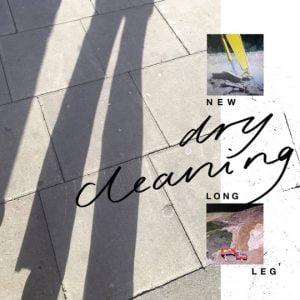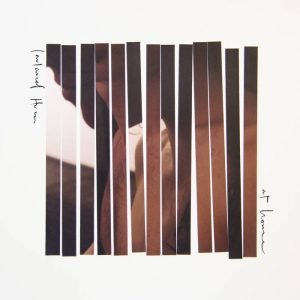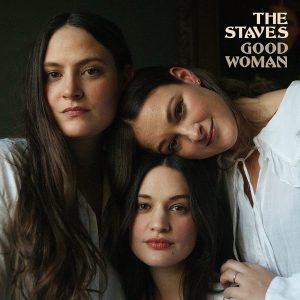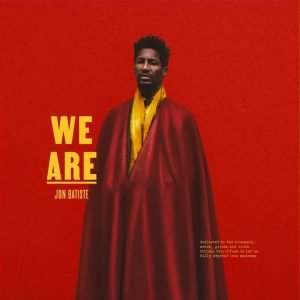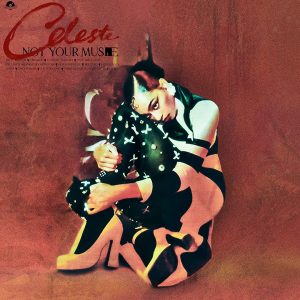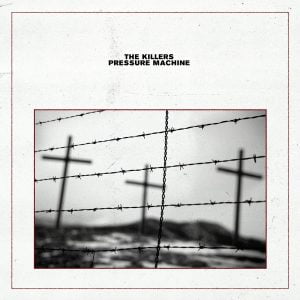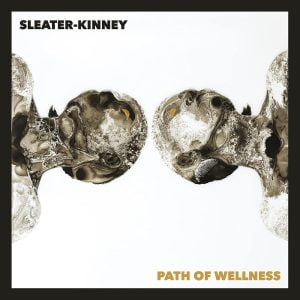For those who love year-end lists like this, and those who also love the Insta… I bring you good tidings of great joy! Okay — maybe that’s a bit hyperbolic. I bring you some unremarkable tidings that might interest you?
Looking Closer now has an Instagram account: @OverstreetReviews.
Follow me there for some spur-of-the-moment notes on new movies, music, and reviews worth reading.
And now, we return to our long-overdue musical journey through my favorite albums of 2021. Sit back, turn up the volume, and get ready to sample some songs and videos. It’s time for Part Two.
(What’s that? You missed Part One? You can catch up with it here.)
25.
Dry Cleaning – New Long Leg
It’s tough to explain my love for this one. It’ll divide audiences. If you want a proper introduction, read Jillian Mapes’ revealing and spot-on review at Pitchfork. (I couldn’t do better than the first two paragraphs of that review.) I love the guitars, which veer from R.E.M.’s Fables of the Reconstruction rock to mesmerizingly simple Wilco-style vibe to a whole lot of noisy Sonic Youth. Each song has an irresistible riff that could go on for ten minutes without wearing out its welcome.
But this is the Florence Shaw show, and speak-singing enchantress who will either bore you or mesmerize you with her own fascinating boredom, her amusement, her bemusement, her rambling monologues full of randomized quips and comments and curses. Her voice has the hushed intimacy of a British Suzanne Vega, a very dry gin laced with some PJ Harvey bitters. It feels like we’re hearing her read a collection of lines she’s overheard in coffee shops and pubs, or looking at collages made of scraps she’s ripped from her memories. And as we try to make sense of them, you can feel her sitting back, lighting a cigarette, putting her boots on the table, and watching us puzzle over them.
In the song called “John Wick,” she starts with the line “No, that’s not true.” Are we joining a conversation already in progress? And then,
Eyes drift to the TV, mostly uncles and fathers
Mostly eating nuts, seeds and berries
What do you think your parents feel?
That nod that says, “I’ve seen things”
Your guess is as good as mine. But then, suddenly, she’ll veer into an intriguing observation that resonates with importance, like this:
They’ve really changed the pace of The Antiques Roadshow
More antiques, more price reveals
Less background information
The reason the price reveals were so good was because we had to wait for them
And suddenly, you begin to suspect that there’s more going on here than you thought. What does it have to do with John Wick? I can’t wait to see you try to answer that.
24.
SAULT – NINE
My favorite music of 2020 came from Sault with their soundtrack to the global uprising of Black Lives Matter — a two-album knockout: Untitled (Black Is) and Untitled (Rise).
As if that wasn’t enough, they proved that they’re not going to let up the pressure by applying even more inspiration and brilliant. They followed up 2020 with a bonus record that’s similarly agile in its shifting from one style to another. The regulars — Inflo, Cleo Sol, Kid Sister — brought in new sounds and voices, including one of 2021’s M.V.P.s: Little Simz. (You’ll be hearing more about her later in the list.)
The songs are sewn together with spoken-word testimonies, including eyewitness accounts of police violence, and laments for the thickness of the skin that Black people must develop in order to endure the relentless crimes against them. There’s a dark, propulsive song about London Gangs, a sketch-comedy song about the ways in with Black Londoners face extra layers of stereotyping in the U.S., and they save the best for last: “The Light’s In Your Hands” — a closer of such yearning and hope that I have a hard time getting through it without tears.
23.
Lowland Hum — AT HOME
The only band with two spots on my Top 35 is Lowland Hum, who have been making the most of the pandemic’s first two years. While raising a newborn, Daniel and Lauren Goans produced two luminous, intimate, homemade albums. I mean… what have *you* done with your isolation time?
This one — simply titled At Home — is all new material that, while touched by the anxieties of the age, is overwhelmingly and earnestly hopeful. Lightly peppered with Beatles-y flourishes (especially in the interplay of a mischievous piano and woodwinds in “This Part” and “New Day”), it rewards repeated listens and close attention to the lyrics.
From the opening track’s haunting, tech-addled loneliness (“Where Are You?), to the aggressive positivity of its time-capsule anthem “2082,” to Daniel’s intricately playful guitars and Lauren’s shiny layered harmonies of “Try to Try,” the album’s first act is determinedly bright and poppy, as if they’re both determined to burn off the fog of pandemic isolation and touch the blue sky. Things take a plaintive turn with Daniel’s heavy-hearted prayers in “Not My Kind of World,” a song that somehow sounds like Paul McCartney and early Pedro the Lion at the same time.
In “Take Me In,” they dance a nimble, tricky duet, singing, “Through the night / I could barely hold onto the light / Blindly groping for gentle sign / That there’d be another day.” Who among us hasn’t had a night like that in the last few years? In the chorus, they find in each other the solace everyone needs: “Keep me close to you / All I need is love / Though I can be cool / I respond to love.” As if to grant the wish, they then tumble into a summery romantic nostalgia trip, revisiting a time and place ablaze with romance: “Jenny Lake.” We should all be so blessed as to have memories as warm as that one to recall as a refuge and a rejuvenation.
22.
The Staves — GOOD WOMAN
Giving the Justin Vernon production stylings and going for a more intimate, up-close-and-personal sound, The Staves sisters seem to be re-introducing themselves as a powerfully harmonious family band on a large-hearted mission for goodness. Perhaps that has to do with the fact that they lost their mother in the process of composing this set. The opening track, a meditation on what it might mean to be a “good woman” sets the stage with echoes of the voices of women in their family. In a Stereogum interview (quoted at Genius.com), Jessica said this:
With ‘Good Woman’ there’s a moment in the song where there’s lots of female voices in the background. They’re voices of our friends and family. There’s a recording of our mom’s voice in there, our grandma, and they’re all kind of laid up pretty far back in the mix. And the idea was to create the kind of inner chatter in your mind — and especially as a woman, all the worries that go around your head. You’re not worrying just about yourself, you’re worrying about so many other people that you care for in your life, that you feel responsible for. And when you add together a number of women’s worries, it all just becomes this noise. I thought of it as if you could put a lead coming out of your brain, that might be the sound, maybe, that you would hear.
Subsequent tracks focus on friendship (“Best Friend”), interventions for friends whose decisions are doing harm (“Careful, Kid”), vows to go on loving and honoring someone who’s gone (“Sparks”), asserting oneself when commitment undercuts agency (“Devotion”), facing one’s mistakes and low points and shaking it off (“Failure”), and — in perhaps the most pandemic-specific song — overcoming a sense of smallness and helplessness when the world seems out of control (“Trying”).
Highlights include the earnest inspiration of “Nothing’s Going to Happen,” a pep-talk of a song about conviction and resilience, about steadfast striving, about finding the courage to engage even though the world outside seems to be burning at the hands of an arsonist enemy; “Paralyzed,” a song about calling for help and summoning strength in the wake of abandonment and loneliness; and “Satisfied,” a song that I think may be about that itch that artists know and wrestle with, the yearning and the burning to go on making, striving to speak the Truth even thought it’s always too much to know or express.
21.
Dave Von Bieker — LONG FOR THIS WORLD
Full disclosure: Dave Von Bieker is a dear friend of mine. But a lot of musicians are friends of mine, and I do not give them an advantage when it comes to my reviews or my year-end lists.
I listened to this record out of respect for my friend the first time.
Then I marveled at the layered, vivid production.
Then I had to admit that Von Bieker has that thing that Bono talks about — that soul is rare in vocalists (especially male pop singers).
The melodies got their hooks into me.
And, above all, the lyrics gave expression to so much of my own experience: my longing for certain places, certain faces, certain occasions. Von Bieker sings about Santa Fe because he’s been a part of the Glen Workshop, the annual arts retreat that I attended for 16 consecutive summers, and he is a part of the creative community there that has changed my life — changed our lives. But when he sings about places I haven’t been — Coney Island, Vancouver’s Gastown — the specificity of his references make the songs come alive with humanity and passion in ways that make me think of my own list of “places I can’t live.”
And in my longing for those occasions and places, I, like Von Bieker himself, have to admit that what I’m really longing for is transcendence, for communion with the Divine. This is a whole album of “Rainbow Connection” Gospel, that sense that the Kingdom of God is at hand if we can only train ourselves to see it.
The song “Alberta Hospital” may catch the attention of Over the Rhine fans: It has strong thematic overlap with their beloved anthems “All My Favorite People” and “Only God Can Save Us Now.” (Perhaps that’s because Von Bieker is a student of Linford Detweiler and Karin Bergquist.)
I am blessed to know a lot of extraordinarily talented musicians. They’ve made a lot of impressive records, and I am grateful for their music. This particular album — available here at Bandcamp — became very important to me this year, consoling and cathartic in a rare and personal way, and it will remain so for years to come.
20.
Lowland Hum — So Low
How do I rank this one fairly? It’s an album that’s already been around since the late ’80s, and many of us know it by heart. It’s basically an epic covers project.
But oh — what covers! Daniel and Lauren Goans astonished me with this exquisite re-imagining of Peter Gabriel’s pop masterpiece — So — giving me even greater appreciation for one of my top 5 favorite records of all time, and finding new possibilities in the delicate melodies — through their playful and surprising harmonies, and through the agile, artful instrumentation.
On this version of So, different songs stand out for me: “That Voice Again” sounds as strong as anything else on the album, and “Red Rain,” which usually sounds frightening and apocalyptic, is now eerily consoling. A surprisingly hushed take on”Big Time” seems all the more sinister for the subtlety.
And then there’s “Sledgehammer,” probably the most complicated and creative re-invention on the playlist. Listen to the original, and then give this one a try. (Then consider that it was Harry Styles who blew up Twitter with his cover of the same song in a performance that was nothing more than an imitation of the original.)
I interviewed Daniel and Lauren at Looking Closer about this project, and I’ve continued to draw strength and inspiration from this — perhaps the most surprising release of 2021 for me.
19.
Jon Batiste — We Are
The title track of Jon Batiste’s We Are is better than a blast of caffeine and sugar at getting me out of bed in the morning and launching me out into the world with a zeal to love my neighbors and do what I can to save the world with a smile on my face. Batiste has become such an essential part of The Late Show With Stephen Colbert, its childlike spirit, its fount of everlasting improvisational inspiration… its soul. (It makes sense. Didn’t he win an Oscar for his contributions to Pixar’s Soul?) But it’s not just the marching bands and ecstatic inspiration of that opening song — it’s the whole thing. Batiste sustains a sense of divine inspiration as he reflects on the voices that have shaped him and motivated him throughout his life.
Many music critics who know more than I do about the history of the traditions in which Batiste’s roots run deep… they’ve been rejoicing over this record. I’ll let them get specific:
Josh Hurst, in his best of 2021 list, says that, when he listens to We Are,
[I]t’s clear that Batiste is actually pretty close to the center of several musical universes, uniting a swathe of Black music idioms (jazz and blues, hip-hop and R&B) into something kinetic, colorful, and purposeful. Loosely structured as a bildungsroman, the album traces Batiste’s journey from youthful innocence to a place of wisdom and advocacy. He is a polymath in the vein of Prince, but where the Purple One trafficked in kink, Batiste’s whole vibe is basic decency. And who couldn’t use some of that?
Here’s Jackson Sinnenberg at Jazz Times:
[We Are] remixes the last 400 years of Black American Music to dizzying and wondrous effect. ‘Tell the Truth’ crossfades the relentless punch of early-’70s Booker T. & the M.G.’s with honey-sweet string arranging that suggests the likes of Jimmy Jones. The horns drive the brightness into your brain until you come out smiling. On ‘Show Me the Way’ Batiste stretches his vocals to the heavenly heights of ’50s crooners like Little Anthony while seemingly taking cues from the Thundercat song of the same name, blending rumbling rhythms with the melty melodies of slow-jam R&B.
It’s an “Editor Pick” at Spill Magazine:
We Are is a stellar album that connects a rich level of tradition and modernity together proving Batiste is as steeped in classic gospel, soul, jazz, and funk as he is the pop and hip-hop of the last two decades. Furthermore, We Are is ties together a level of simplicity with sublime technical genius, making it a record that should be admired equally for its musicianship and intricate songwriting as for its ability to seemingly fit in with the contemporary music of today. If We Are demonstrates anything, it is that Batiste is peerless in his creativity and delivery. Often nostalgic for other eras and artists, Batiste remains truly unique as he joins the class of Kendrick Lamar, Anderson. Paak, and Gary Clark Jr. only in the sense that We Are is a record unlike anything else in the last decade and could only have been written by Batiste.
At AllMusic, Matt Collar walks through each track with wide-eyed admiration:
Using the best of the past to build toward a better tomorrow is a stirring notion that pervades the album, both musically and thematically. He draws upon the vigorous grooves of New Orleans funk pioneers the Meters with ‘Tell the Truth’ and crafts a buoyant, psychedelic-soul vibe with the help of author Zadie Smith on ‘Show Me the Way.’ One of the most vivid encapsulations of his old-meets-new sound on We Are is ‘I Need You,’ an electric amalgam of boogie-woogie blues and vintage hip-hop attitude — like an impossible combination of Little Richard and OutKast. Batiste’s genre-mashing reinforces the album’s theme of intergenerational wisdom, and it’s also wonderfully fun.
18.
Celeste — Not Your Muse
Speaking of Jon Batiste… did you notice his duet with Celeste at the end of Pixar’s Soul?
2021 was a year of surprises for me, full of artists I hadn’t really noticed before who suddenly knocked me flat with outstanding records. Celeste’s Not Your Muse introduces me to a new voice on a record that seems nearly perfect in its jazz-pop ingenuity. It’s intimate one moment, and then it delivers a bombastic show-stopper. It’s exquisitely layered to showcase Celeste’s vocal power, and then it’s hushed and soulful as if we’re hearing some interior voice.
And “Tonight Tonight” is about as perfect a pop single as I’ve heard in recent years.
17.
The Killers – Pressure Machine
The Killers is one of the last rock-and-roll bands standing who still believe in and sustain the model of U2: Four guys, three chords, and the truth. They’ve always seemed a bit too derivative to me in style and sound. The soaring ambition of last year’s Imploding the Mirage got my attention, and I kept listening because I was missing that kind of band. But now they’ve really impressed me by releasing — right away! — another album completely different from that one. This one takes them to Nephi, Utah, the small-town where band leader Brandon Flowers grew up — for a Springsteen-like book of stories, characters, and testimonies, stitched together with voices and views of people who really live there. The voices highlight the great divide between the lives of those who are privileged, pious, white, and evangelical (fundamentalists so preoccupied with their future in heaven that they can’t be bothered to love the world they live in now), and those who are neglected and persecuted: those who are depressed, or black, or gay, or poor.
The guys — Flowers, Dave Keuningm Mark Stoermer, and Ronnie Vannucci — sound reborn with a new sense of purpose. Phoebe Bridgers shows up on a track, too. This is for The Killers what The Suburbs was for Arcade Fire — and yet it avoids that double-album’s obvious zeal to own the status of World’s Greatest Band… which is a good thing. I hope this album is a sign of things to come.
16.
Sleater-Kinney — Path of Wellness
Can Sleater-Kinney survive the loss of drummer Janet Weiss (who left the band just as their last album was released)?
Yes, indeed. I like every record this band has made, and I’d argue this one is stronger than 2019’s The Center Won’t Hold — even though it lacks that flashy, St. Vincent-production. (Actually, I think the experiment of that last record was an idea that sounded better on paper than it proved in execution.) This one gets the band back to that raw, live sound that they’re best at. It doesn’t sound like they’re trying to blaze a new trail here, but rather they’re digging deep into grunge-y grooves that just sounded so right during the grinding endurance marathon that has been 2021. I played this record a lot, and LOUD, during my commutes this year. In a year dominated by hip hop, pop, r&b, and soul, I needed rock-and-roll, and there was precious little of it happening. Brownstein and Tucker hit the spot.
And now, you’ll just have to wait a while longer for Part Three. I must survive the next two weeks of course work at school, and then I’ll publish the best of the best of 2021.
